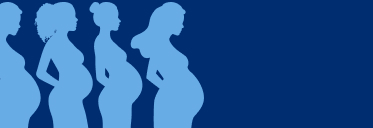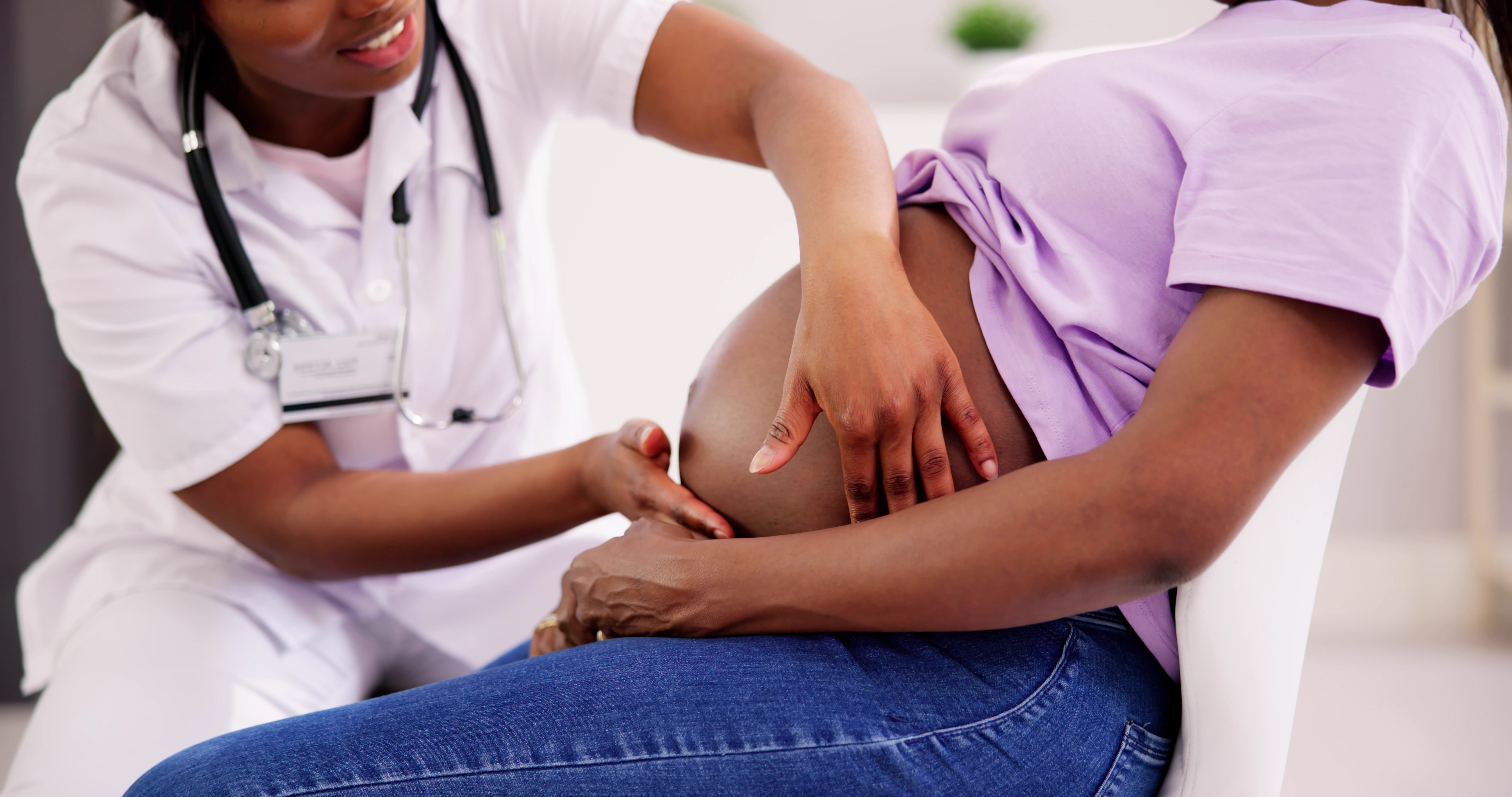
NY-CHAMP
Columbia University and Weill Cornell Medicine
The NY Community-Hospital-Academic Maternal Health Equity Partnerships (NY-CHAMP) Center of Excellence brings together Columbia University, Weill Cornell Medicine, four lead community organizations, and a broad coalition of community, hospital, academic, and government partners in a highly collaborative, paradigm-shifting model for excellence in maternal health research.

Columbia University
Contact
-
Co-Principal Investigator (Co-PI): Dr. Uma M. Reddy
-
Co-PI: Dr. Kelli Stidham Hall
-
Co-PI: Dr. Jacquelyn Y. Taylor
-
Co-PI: Dr. Lauren M. Osborne
-
Co-PI: Dr. Monica M. Safford
-
Co-PI: Sevonna Brown
-
Co-PI: Madeleine Dorval-Moller
-
Co-PI: Emilie Rodriguez
-
Co-PI: Victoria St. Clair

At a Glance
2
Research Projects
18+
Community Partners
Research Topics- Racial equity
- Mental health
- Cardiovascular health
Status
Research activities started
Overarching Aims
Conduct a Type 1 Hybrid Effectiveness-Implementation Trial of a novel doula-delivered cognitive behavioral therapy program, Living Healthy for Moms, holistically designed to address cardiovascular and mental health outcomes and social determinants of health among postpartum patients; build trauma-informed and empowerment-based care; and strengthen hospital-community care linkages.
Conduct a rigorous mixed-methods evaluation of the effects of, excess costs attributable to, and community-derived solutions for structural racism and severe maternal morbidity (SMM)/maternal mortality (MM), including the mitigating effects of two policy-relevant interventions (Medicaid eligibility generosity; diversifying the maternal healthcare workforce) on maternal health inequities.
Establish the Community Engagement and Policy Action Core (CEPA) to serve as an enduring platform for iterative community input and collaboration. We will:
- Build and launch a novel, community-led anti-racism and empowerment-based provider + patient training program
- Conduct a novel co-design process in parallel urban and rural sites for intervention scalability
- Facilitate community-engaged research dissemination, capacity building, and policy action for maternal health equity in New York City and New York State.
Establish the Career Development and Training Core (CDTC) to:
- Transform the maternal health research culture by creating a pipeline of diverse early-stage investigator (ESI) scholars who are committed to community engagement and expert in interdisciplinary, multi-sector research partnerships;
- Operate as a hub for maternal health-focused training opportunities and resources in anti-racism, racial allyship, cultural humility, and diversity, equity, inclusion, and justice; and
- Engage ESI scholars in hands-on training in intervention science that is community-led, anti-racist, and interdisciplinary via a novel demonstration project.
Research Project Details
Living Healthy for Moms (LHMoms): A Holistic Postpartum Intervention
Living Healthy for Moms (LHMoms) is a holistic, doula-led intervention designed to improve cardiovascular and mental health of postpartum patients. This includes a doula-led health emergency detection program during the critical first 7 days postpartum and a trauma-informed, doula-delivered cognitive behavioral therapy intervention to address postpartum depression and cardiovascular risks in the six months following delivery. This Hybrid Type 1 implementation trial will test the effectiveness of LHMoms in lowering postpartum depression, improving cardiovascular health, and creating better quality of life with 450 randomized birthing individuals at three hospital sites in Brooklyn, Queens, and Northern Manhattan.
Addressing Structural Racism (SR) in Maternal Health Disparities
This mixed-methods research study will inform efforts to improve population maternal health equity by understanding and addressing the underlying determinants of racial and ethnic disparities in severe maternal morbidity (SMM) and mortality (MM) and ensuring equitable access to quality, culturally appropriate maternal health care. The study will analyze hospital discharge records from 21 states to evaluate the effects of structural racism on maternal health outcomes and hospital costs, as well as examine how state policy interventions may mitigate this effect. This will be complemented by prospective in-depth interview and focus group data from multisector stakeholders (patients, community, hospital) in three New York City hospital sites (Brooklyn, Washington Heights, Queens) to identify community-derived solutions to promote health equity in maternal care.
Key Maternal Health Indicators: New York
-
207,774
live births in 2022 1
-
33.8%
of births were cesarean deliveries 1
-
9.4%
of births were preterm 1
-
47.4%
of deliveries were covered by Medicaid 1
-
1,203
women with life-threatening complications per every 100,000 births 2
-
18.2
women die from pregnancy complications per every 100,000 births 3
-
5.1x
more Black women die from pregnancy complications than White women 3
-
Top-3 causes
of pregnancy-related deaths: embolism, hemorrhage, and mental health conditions 3
-
4.2%
of women are without a birthing hospital within 30 minutes 4
-
77.4%
of birthing women start prenatal care in the 1st trimester 1
Partner Organizations
NY-CHAMP is a partnership between Columbia University, Weill Cornell Medicine, Northern Manhattan Perinatal Partnership, Black Women’s Blueprint, the Bridge Directory, Caribbean Women’s Health Association, NYC Health + Hospitals, NYS Department of Health, NYC Department of Health and Mental Hygiene, University of Rochester Medical Center, Nurse Family Partnership program, Perinatal and Infant Community Health program, and the American College of Obstetricians and Gynecologists (ACOG) District II Safe Motherhood Initiative.
The Community-Hospital-Academic Research Governance Board (CHARGE) Board is comprised of 18 members from community organizations, hospital partners, government entities, and academic institutions.
- Columbia University Irving Medical Center
- Weill Cornell Medicine
- Black Women's Blueprint
- Caribbean Women's Health Association
- The Bridge Directory
- Northern Manhattan Perinatal Partnership
“NY-CHAMP’s goal is to transform our maternal health care ecosystem by harnessing the power of the New York community, public health, and academia to establish a sustainable, collaborative infrastructure for community-centered science, and to develop evidence-based solutions that will reduce maternal mortality and morbidity and promote health equity for all birthing people in our state.”

Our Work
References
- Data are from 2022 live births occurring within the US to US residents. Cesarean deliveries are the percentage of live births where the final route and method of delivery was cesarean. Preterm births are the percentage of live births where the gestational age at birth was less than 37 weeks. Medicaid coverage is the percentage of live births where the source of payment for the delivery hospitalization was Medicaid. Prenatal care in the 1st trimester is the percentage of live births where the first prenatal appointment occurred between the 1st and 3rd month of pregnancy.
Source: Centers for Disease Control and Prevention, National Center for Health Statistics. National Vital Statistics System, Natality on CDC WONDER Online Database. - Life threatening complications are deliveries with a diagnosis or procedure code indicating severe maternal morbidity. Information reported for 2021.
Source: Agency for Healthcare Research and Quality, Healthcare Cost and Utilization Project, State Inpatient Databases 2010 to 2021. - Information is based on pregnancy-related deaths in 2018. Pregnancy-related deaths include deaths during or within a year of pregnancy from causes related to or aggravated by the pregnancy or its management.
Source: New York State Department of Health. New York State Report on Pregnancy-Associated Deaths in 2018. - March of Dimes Maternity Care Deserts Report 2023.










